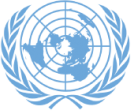Intervention by Hon. Christian M. Ntshangase, Minister of Public Service, Kingdom of Eswatini-“Upholding the Bandung Principles to ensure concerted and adequate response to the challenges of contemporary world
Baku, Republic of Azerbaijan
23-24 October 2019
“Upholding the Bandung Principles to ensure concerted and adequate response to the challenges of contemporary world”
Intervention by Hon. Christian M. Ntshangase, Minister of Public Service, Kingdom of Eswatini
Distinguished Chair,
Honourable Ministers,
Delegates here present,
Ladies and Gentlemen,
At the outset, permit me to extend my delegations thanks and appreciation to the Government and People of the Republic of Azerbaijan for the warm hospitality accorded to us since our arrival in Baku. We congratulate Azerbaijan on election as Chairman of the 19th Session of the Non-Aligned Movement and commend them on the excellent organization of the 18th Summit of Heads of State and Government of the Non-Aligned Movement and wish them success for their tenure as Chairman of our Movement. We pledge our unreserved support to them as they execute their duties.
I would also like to take the opportunity to appreciate the Government and People of the Bolivarian Republic of Venezuela for the outstanding manner in which they carried out their term as Chairman for the past 3 years.
Distinguished Chair,
We welcome the choice of the theme for this Summit, “Upholding the Bandung Principles to ensure concerted and adequate response to the challenges of contemporary world”. We believe that the introspection that the theme inspires, is necessary to ensure continued relevance, and indeed, an increased impact of the Movement on international relations. We urge that the meeting reflects deeply on the subject matter at hand so as to ensure that we extract maximum benefit from our gathering.
Honourable Chair,
We stand reminded that the core principles of the Bandung Conference were political self-determination, mutual respect for sovereignty, non-aggression, non-interference in internal affairs, and equality, amongst other. We are all aware of the nature of the evolution that multilateral relations appear to be currently undergoing. Much of what we stand for is under attack. We are at a juncture where we must protect those principles as they remain as relevant today as they were at the initiation of our august movement.
As a country and as a committed member of this Movement we hereby restate our belief in and support for the principles. We have always held these standards in the highest regard and recent events have only served to increase our resolve to see them upheld. We are hopeful that this is the spirit that engulfs us all as we look to rejuvenate the Movement and chart out a way forward that seeks to build rather than shy away from relationships, cooperation and collaboration.
Eswatini has always been a nation that places a premium on the pursuit of peace and we are a firm advocate for negotiation and dialogue as a tool for the resolution of difference and conflict where such may arise. We have always stood for the well-established norms and values that, in time, have manifest into principles that have governed relations between states and their neighbours as well as the rest of the global community. Therefore, as we are given this platform, it is with this endeavor in mind. We believe that where we may have differing opinions, we have the means to resolve them, through negotiation and dialogue, bearing in mind the framework through which relations are governed.
Distinguished Chair,
As I conclude this brief intervention, permit me to highlight the importance of recommitting to working together as the only avenue that guarantees peace and development for all our countries. We cannot succeed without each other and we need to engage with respect and dignity whilst seeking guidance from the norms and principles that have evolved through time, experience and collective wisdom. The Kingdom of Eswatini is desirous of a return to unity within our Movement, and in other international for a, and the recognition of the primacy of international law as the basis for our interactions.
I thank you!


